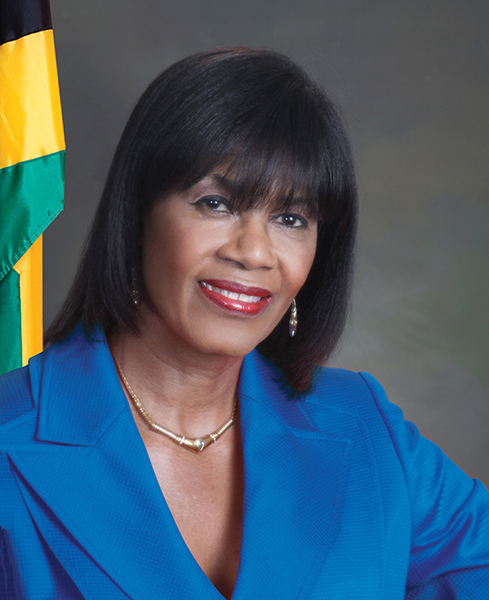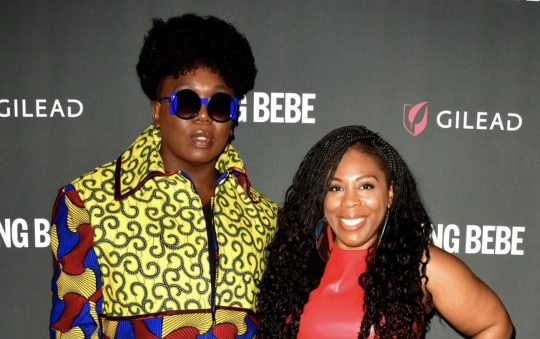
When U.S. President Barack Obama and Jamaica’s leader, Portia Simpson Miller meet in Kingston next Thursday, the legacy and the name of Marcus Mosiah Garvey as seen through American and Jamaican eyes may be put on the table for discussion.
The issue may be put there by Jamaica’s Prime Minister, Portia Simpson and what may be at stake is a pardon or exoneration for Garvey, a Jamaican national hero who spent more than a dozen years in the United States where he led the largest economic and social mass movement of Blacks in the first half of the 20th century. Garvey advocated economic independence and positive self-awareness for millions of Blacks. At the same time he encouraged a positive cultural identity and self-determination for people of color. However, his message stirred Black and white critics whose complaints and allegations triggered a federal investigation that culminated in a conviction on federal mail fraud charges which many independent legal analysts and Garvey supporters insist to this day were trumped up and therefore didn’t have any basis in fact.
The issue of Garvey’s treatment in the U.S. was raised at a Diaspora town Hall meeting in Manhattan last week by Jamaica’s Prime Minister, Portia Simpson Miller, who told hundreds of Jamaicans that she might raise it.
“We are a great people. We have produced many great sons and daughters” and they ranged from Bob Marley and Bogle and Samuel Sharpe to Nanny, Queen of the maroons and Marcus Garvey and it was in that context that she said that she would raise the matter.
“As Jamaicans we come from strong bloodlines. Whether it was Bogle, Sharp, Garvey. I think I will have to raise with President Obama when he visits Jamaica, Marcus Garvey,” was the way she put it. “That great man should never be seen as a criminal. That great man. I believe his name should be expunged from the record (of criminals).”
In raising the issue in that way during a short speech devoted to praising the Diaspora and urging nationals to attend the Jamaica Diaspora conference in June, Simpson-Miller didn’t indicate if she would seeking a pardon or exoneration.
Obama is going to Jamaica to meet with Caricom leaders while on his way to Panama to attend next month’s Summit of the America on April 10-11.
Garvey who came to the U.S. in 1916 from Jamaica, founded and led the Universal Negro Improvement Association, which at one stage had about a million members scattered across the United States, Canada and the Caribbean. He formed an array of national corporations and institutions, including the Black Star (Shipping) Line, the Negro Factory Corporation, the Negro World newspaper, and the Black Cross Nurses as well as the Flying Eagles. His message of self-help and independence resonated with Blacks everywhere.
When asked to comment on the Prime Minister’s statement, Garvey’s son, Dr. Julius Garvey, a board certified surgeon who specializes in the diagnosis and treatment of vascular diseases, described his father’s 1920s trial as “unjust” and his conviction was without merit.
“There was no criminal behavior and the whole thing was a miscarriage of justice,” said Dr. Garvey. “It can’t be that he is pardoned of criminal behavior. We are using the means of pardon because we acknowledge that the justice system failed. It was an injustice and this needs to be corrected. While the word may be ‘pardon” it would have to be surrounded by other things which indicate there was no criminal behavior. On the contrary, he was victimized by the judiciary because of the stance he took in terms of supporting Black people at that point in time.
“Whatever the legal term used, it has to state there was no criminal behavior. The trial was basically a farce and it was a miscarriage of justice,” he explained. “It was instigated by Edgar Hoover. Those facts and statement have to be there.”
Like the Prime Minister, Dr. Garvey said his father “was not a criminal” and was simply trying to promote the concerns and well-being of “African peoples worldwide” at a time of widespread colonialism and racism.
A.J. Nicholson, Jamaica’s Foreign Minister who once served as his country’s Attorney-General, told the Carib News that he too was keen on pressing the Garvey case with Obama.
“If I get the chance I will ask the President about Marcus Garvey,” said the Foreign Minister.
During the Town Hall meeting at St. George’s Episcopal Church, both the Prime Minister and the Foreign Minister praised the members of the Jamaican Diaspora for their commitment to their country’s development.
Hermon Lamont, the Jamaica Consul-General in New York, was the chairman of session which was frequently interrupted by gay activists shouting criticisms of the government and the Prime Minister from the rear of the church.






